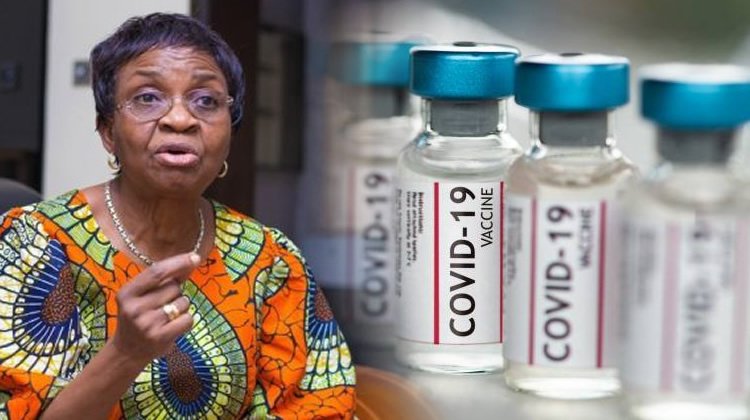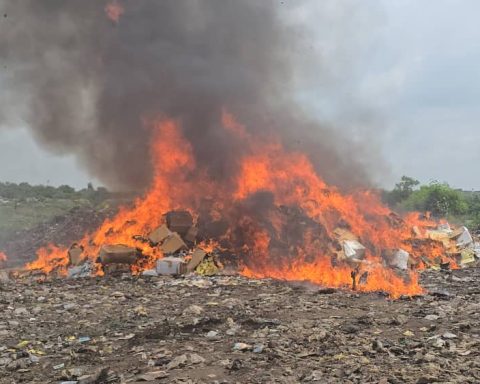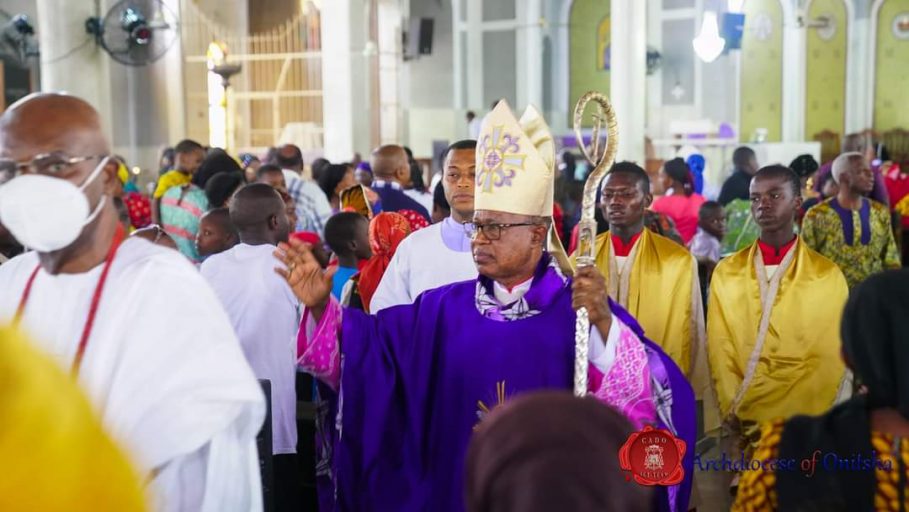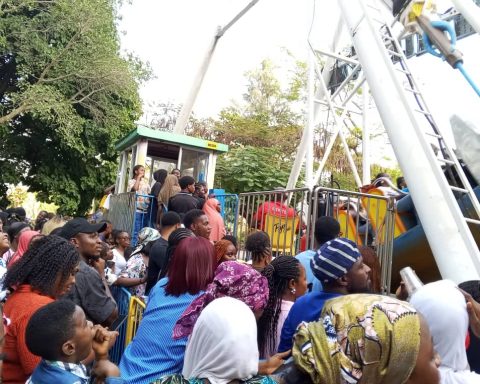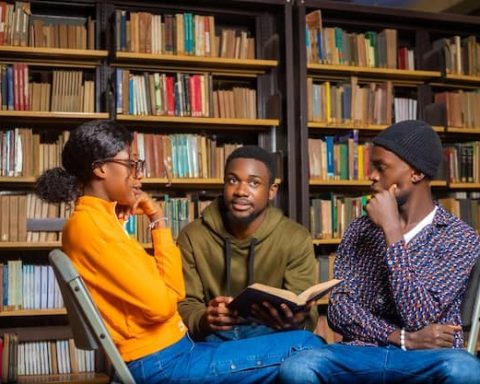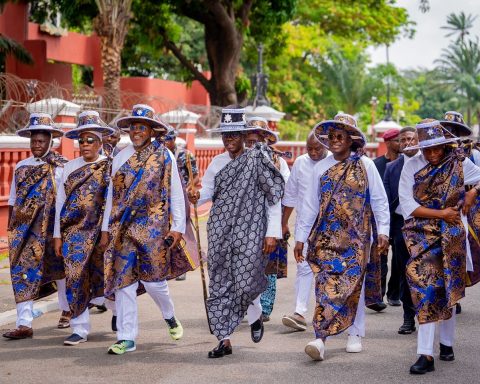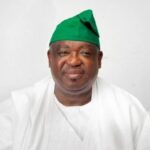THE COMFORT ZONE
It was fifty-one years ago (1971) when I boarded a vehicle from Ogunpa Motor-park, Ibadan, to Nsukka, to embark on my undergraduate education in pharmacy. Leaving my Western state capital home to the East just after war was very challenging but the “can do” attitude and thirst for education, being the first to go to university, overcame my fears.
Join our WhatsApp ChannelWe left Ibadan around 6 or 7 in the morning and arrived at Nsukka at about 4:00 p.m. The journey was tortuous because of the ravages of war – gullies on the road, bridges that are now iron plates over water where you must alight from the vehicle for the driver to get the vehicle to the other side to reduce the weight.
I arrived with with all hope that I will get a great education. And, yes, I did.
Looking back, despite the inconveniences, some highlighted below, we had a dedicated faculty, cooperative staff, from cleaners to the refectory workers, to the administrative staff.
AFTER THE WAR
I remember that the Faculty of Pharmacy was just one office at the beginning for Prof Iwe Akubue, the Dean; Prof. Ossisiogu; Prof Chiori; and a few others in the long office in Carver Building.
There were some extra chairs that you can borrow, if you come early, to take to Carver Auditorium that no longer had seats due to the ravages of the war. If you don’t have a seat, you may carry a block from outside or spread a newspaper on the floor to seat for lectures.
I remember you must also come very early to colonize space to place the chairs, paper, or bricks. There were occasional ethnic frictions, because of the recently fought war in the class like name calling for myself and Ronke (bless her soul) who were the only “Across the Niger” and “Ngbati, ngbati” students in the Sciences.
What have I learned? To argue evocatively and stand your ground, to be focused, and friendly. What didn’t I know? That God was preparing me for a 37-year sojourn in the U.S.
What resonates with me always was our University Motto – “To restore the Dignity of Man”. What is dignity? It is the “State or quality of being worthy of honour or respect.”
How can this be attained?
My five-year sojourn at Nsukka opened some windows and doors to learning that became part of my social DNA.
LESSONS AND GRACE
Our teachers were dedicated, managing what we had until the prefabricated buildings were built for Pharmaceutical, Microbiology, Pharmaceutics, Pharmaceutical Chemistry, and Pharmacology that housed the laboratories and lecture rooms.
For the core courses – Biology, Chemistry, Physics, Mathematics, and English, we had lectures in the bigger auditoriums.
They made sure that we got the best, I couldn’t remember a lecturer missing a class. They challenged us to be the best, there was a discipline and integrity in exam processing. If there was an infraction, the student was punished. That served as deterrence to the other students.
What did I learn? That you can be firm as a teacher or supervisor, and that deterrents must be set to have quality.
Summer holidays were for working to earn money for my books. There was no fooling around because a lot is at stake without books. Our library was fairly populated with needed books, therefore, having the basic textbooks became a compulsory exercise. I remember the books for pharmacy that will be removed from regular shelves, and taken to history, Bible knowledge, or a shelf of unrelated subject.
Sometimes, certain pages from a book (such as Remington’s The Science and Practice of Pharmacy) in the reference section will be cut denying others access to vital instruction. These abuses of library books were not uncommon in some other institutions of higher learning. However, the attitudinal response makes the motto – To Restore the Dignity of Man – come to the core. That’s how can you make the best of a bad situation, or as much as possible, what can you contribute to make it better?
These are issues from which I have learned.
We didn’t have enough full-time lecturers: Prof Agbakwuru, our Pharm. Chem. lecturer was commuting from Enugu; Prof Okorie came from University of Ibadan for short but intensive teaching periods where lectures would start at 6:00 p.m. after dinner and could last till ten.
What was my takeaway?
That you must be adaptable in life and remain focused on the goal, irrespective of the inconveniences you encounter.
The first year was rough. I was always ill from allergy, and trying to adjust to my new environment. I remember I was ill during the end of session exam and got admitted at the Medical Centre. I insisted I must be discharged because I didn’t want to miss the exam, realizing I was across the Niger. I went straight from the Medical Centre to do the Physics Practical Exam. I failed that exam and mathematics.
I had to travel back from Lagos to Nsukka for the supplementary exams in September before the general resumption. That was what I was trying to avoid.
I was alone or at most with another person in Okpara Hall with nowhere to get food at that time of the year. Dr. Okoro, a lecturer in the Department of Physics saw me on campus and he knew I came back to re-take the exam. He knew I was ill and he remembered the practical exam where I forced myself to take. He was very compassionate, and he said I could come for dinners in his warden’s studio apartment without strings attached.
I learned not to be too cocky, and assuming to think that I can take an exam on sickbed and pass. I was humbled. I also didn’t realize I was in apprenticeship, learning how to deal with students and be compassionate when circumstances warrant such.
Faith wise, and as an Anglican, I went to the Protestant Church on campus but later attended the Christian Union (CU) meetings on Sundays after service. By nature, I must see logical reasoning in a dialogue for me to be swayed. Regarding hell and heaven, I used to argue about it either is true or not, and thought my own goodness could be graded to make me pass for heaven, if it existed.
Then I met my match in the person of the Holy Spirit who during a CU fellowship in the autumn of 1972, when Bro Uma Ukpai preached on:
“What if it is true after all, won’t you come to the safer side?”
I answered the call and learned that all my righteousness were like filthy rags, and I could only come to the safer side by faith and accept Christ as my Lord and Saviour to have everlasting peace and hope in heaven.
This life long lesson keeps me going every day.
Dr. Agarwal was my pharmaceutics teacher who would leave our pharmaceutical preparations deliberately to ensure that the products are weathered by the dry winds of Nsukka, and will wait to see if the labels are still on the container after about 4 – 7 days. This taught us about the pharmaceutical elegance of a product and paying attention to details. I learned that quality is not only in the formulation but includes the packaging and its presentation.
Prof Iwe Akubue, the pioneer Dean and our pharmacology lecturer was very personable. I remember after a viva exam; he invited a bunch of us to his house to meet the external examiners. He built confidence in me, and I learned that you could make students to feel at ease and engender networking skills in them.
I passed that on to my students, more than a decade later.
My final year project was on manufacturing of aspirin tablets and tetracycline capsules, and monitoring their stability. Unfortunately, I had to take samples for testing during Christmas. I therefore had to travel to Nsukka from the West on December 26, 1975, to sample and test. I was alone on campus and brought enough bread for the few days of my lab testing before returning home. I learned to stay focused even when the environment appears lonely and risky. I also learned resilience, knowing that without finishing my project, I will not be able to graduate and keep “my dignity restored”.
I finished from Nsukka and worked briefly for four years before emigrating to the USA with my husband and two children. The lessons I learned in Nsukka came to the surface. There were a lot of social and cultural differences that I had to daily deal with it at different phases or periods in my thirty-seven years there before returning home.
I remember that you can argue educatively, keep your stand, and remain friendly.
As a professor for thirty years, married woman with three children, and having gone through the post-war management at the Faculty of Pharmacy, and because of my family background, I learned you can make the best of a difficult situation. In the field of pharmaceutics, most of your grants usually come from the industry unless you add clinical studies to the research focus. The grants were not in millions; therefore, you must be creative in setting your hypothesis and designing the research for publishable outcomes.
Blessings from God on how to focus on problem solving; the training in graduate school on how to use critical thinking to achieve that helped me to be productive. With my faith and having received compassion from
people like Dr. Okoro at Nsukka, my students became an extension of my family. I was caring in making sure they use critical thinking and become problem solvers and remain committed to timelines and deadlines. That greatly added to the positive outcomes in my research and teaching.
As a minority of minorities in the U.S. and in my professional especially earlier on in my career, I became more appreciative of my national origin and tried to look back. I would come as invited seminar speaker, developed collaborative research on Post-marketing Survey on the quality of HIV/AIDS drugs, welcomed post-doctoral associates in my lab, etc. This is because I saw the privilege of being in the Diaspora as a means of enriching my colleagues at home, not with money but with the research opportunities in the U.S.
I also started a non-governmental organization – Drugs for AIDS and HIV Patients/Sarah Orphan Home during the period realizing the enormity of the burden that the disease brought on the significant number of people living with HIV/AIDS, especially at the beginning of the epidemic.
It was on such trips back to Nigeria in 2010 that I decided I would go through three Nigerian universities to encourage the students to be more participatory in international pharmaceutical research and networking. This took me to Obafemi Awolowo University, University of Jos, and Nnamdi Azikiwe University, Awka, where my friend and colleague, Prof Okey Esimone was serving at that time as the dean.
I extended the trip to visit Nsukka, and Prof Esimone and I travelled there. I expressed my shock to see the prefabricated buildings that were there about 40 years earlier without any upgrade or renewal.
When I got back home and related my sadness and shock to my husband, Senator Olusola Adeyeye, who was then Deputy Chair of the Senate Education Committee; Senator Uche Chukwumerije was the Chairman. I told my husband he had to do something about the situation in Nsukka. He was very displeased to hear about the situation because he is an avid proponent of good education for our young people in Nigeria.
I never knew the extent he would take it. One time when I visited him in the office, he took me to committee meeting to introduce his “Ibo” wife to the members.
I didn’t know he had mentioned to the members that his wife had told him not to come home unless the committee allocated money to the Faculty of Pharmaceutical Sciences, University of Nigeria. They assumed his wife is Ibo. He challenged them that,
“Must his wife be Ibo before money is allocated to a school where the prefabricated buildings used 40 years earlier were still being used without any improvements?”
The rest is history – money was allocated to the faculty for two buildings.
I remembered what Prof Agbakwuru used to tell us, That we should never forget pharmacy education. To go to graduate school so there could be more teachers in the future. Or, we can marry a politician and influence pharmacy education.
Both happened to me! I learned very well.
I cannot forget the pharmaceutical industry that I left before emigrating to USA. It was a strong industry where expatriates have confidence in the medicines they buy daily and they take with them when going back home on furlough or holidays. Forty years later, the story had changed, the confidence level of the consumer had dropped in the quality of medicines in Nigeria.
Where did we go wrong?
My appointment as Director General of NAFDAC gave me the opportunity to know more about the problems. I knew that the regulatory agency must be strengthened for the industry to be resilient and we embarked on the journey of “Restoring the Dignity of Man” in January 2018, barely a month after my resumption.
I knew that the quality culture must be in place before the framework can be strengthened. I instituted the quality management system training (ISO 9001-2015) so that we can think of the consumer more than ourselves, where we think of the image of NAFDAC more than anything else in terms of quality assessment.
We also embarked on the WHO Global Benchmarking Tools (GBT) Audit (ISO 9004). The ISO 9001 was done system-wide, and we became more customer-focused and agency-minded, and received certification of June 2019, and have been recertified (as a result of continuous self-audit) every year since then.
For the WHO GBT, I learned in January 2018 that we needed to satisfy 868 recommendations to reach Maturity Level 3 which is the desired level that can ensure that a regulatory system is operating as a stable, well-functioning and integrated system for regulation of medicines and imported vaccines.
We took the challenge and from what I learned from Nsukka and from life journeys, we systematically started meeting the recommendations. WHO came in June 2019, we had reduced the 868 to 147.
Despite the pandemic, by July 2021, we reduced the 147 to 33 and then to zero by October 15, 2021. However, WHO must come physically for the re-benchmarking which took place on February 21-25. We were declared on March 22, 2022, as a ML 3 regulatory agency – a regulatory system that is operating as a stable, well-functioning and integrated system for regulation of medicines and imported vaccines.
Our journey just began because we have to sustain it and ensure we get to Level 4 Maturity so that the past glory and even more than that can be restored; increased consumer level, safeguarding the health of our population and have an industry that can trade the products approved by NAFDAC world-wide.
Do not blame me, it is because of the lessons I learned from the University of Nigeria, Nsukka – “To Restore the Dignity of Man”.
Thank you and God bless.
Prof. Mojisola Christianah Adeyeye is the DG of NAFDAC


